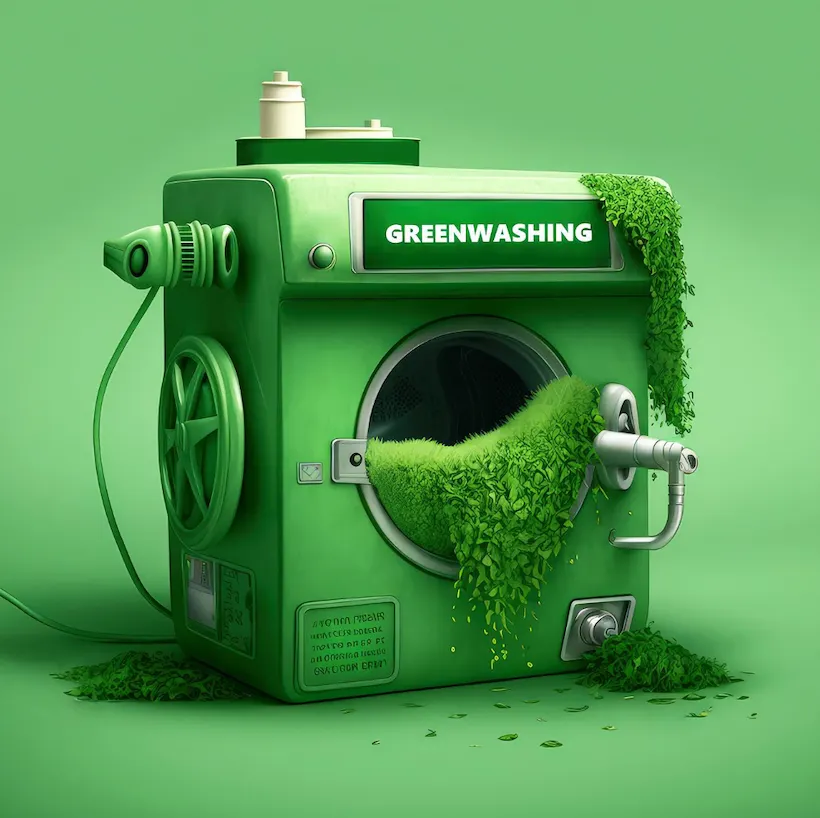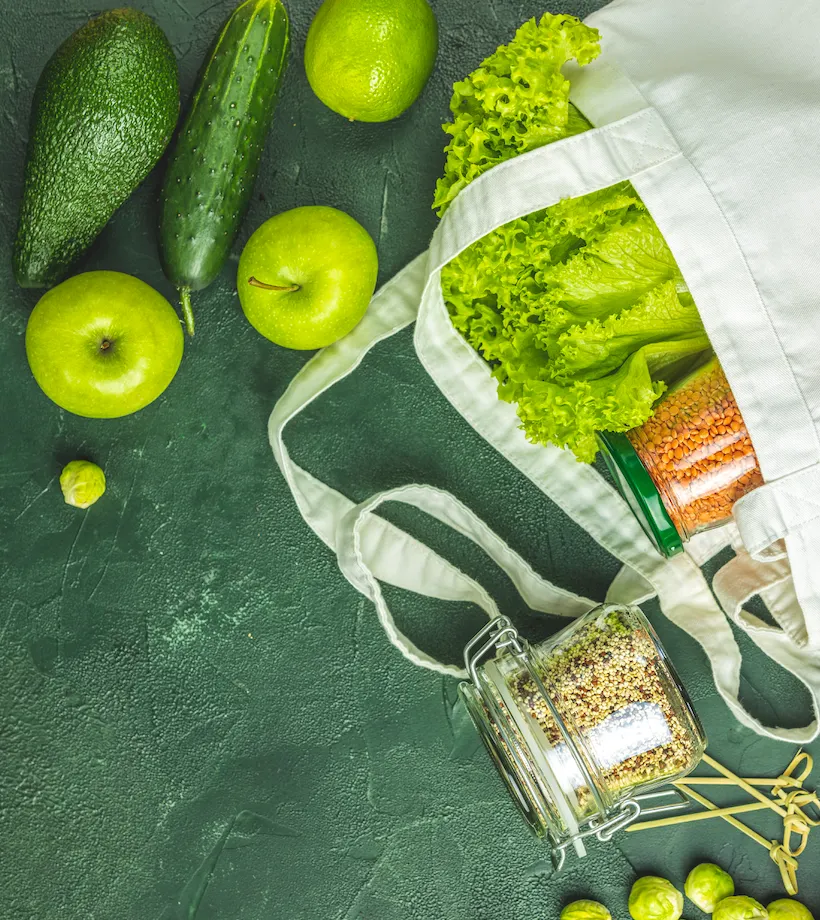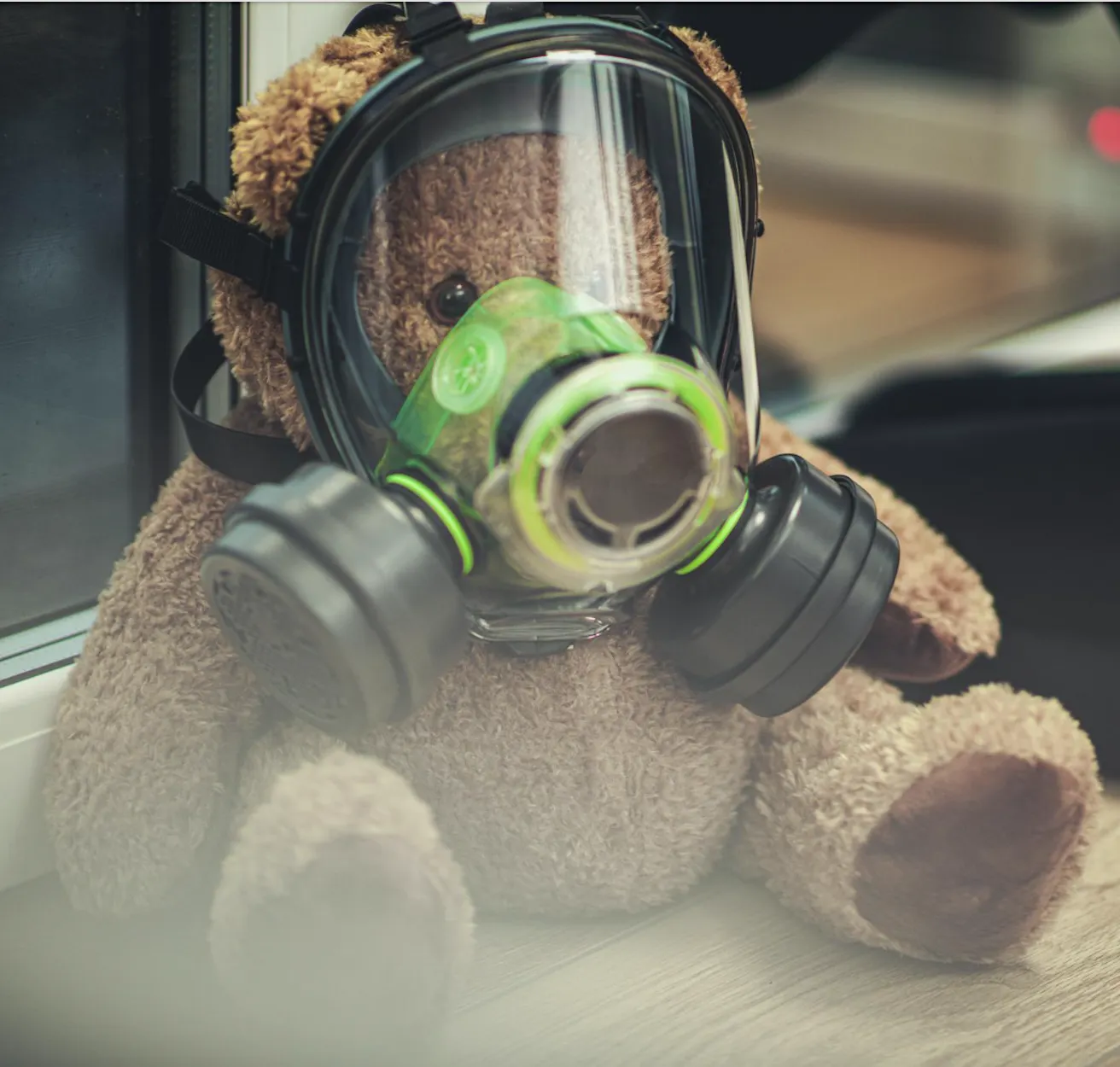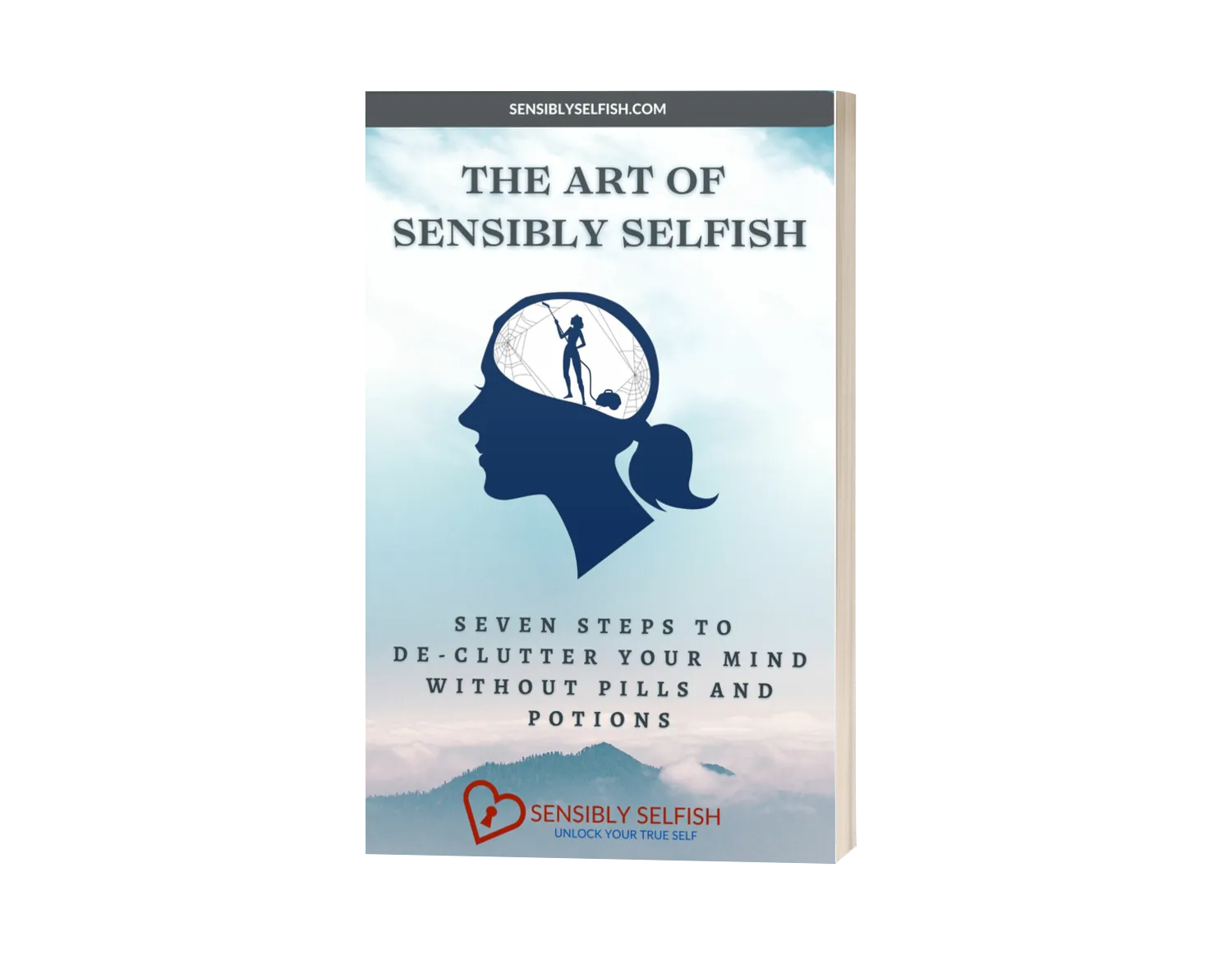The Greenwashing of Recycling
Unveiling Illusions to Find Sustainability

[Toc]
Do you ever wonder if recycling alone is enough to support our planet, or if there's more to the story? Have you ever felt the weight of responsibility placed on your shoulders as a consumer, pressured to recycle everything you use? What if we told you that the key to reducing household waste doesn't begin with the recycling bin, but rather with a more straightforward and simple principle?
"What we are doing to the world is but a mirror reflection of what we are doing to ourselves and one another." — Mahatma Gandhi

What is Greenwashing?
Greenwashing, the deceptive practice of making a company or product appear more environmentally friendly than it is, has infiltrated the world of recycling. Many corporations have mastered the art of convincing consumers that recycling is the ultimate solution to our environmental problems. They encourage us to believe that by diligently sorting our trash and filling our recycling bins, we are doing our part to save the planet.
However, the truth is more complex. Recycling is far from a magic bullet. In fact, it often falls short of its eco-friendly image. The process itself consumes significant energy and resources, with only 9% of materials effectively recycled.
Furthermore, the burden of recycling should not be solely on the consumer's shoulders. It's a shared responsibility that should involve manufacturers creating sustainable products and governments implementing effective waste management systems.
The recycling story also instills a sense of guilt in consumers. If you feel like a failure for not recycling every scrap of plastic, you're not alone. Companies benefit from this guilt because it keeps us focused on the recycling bin instead of addressing the root problem: overconsumption and excessive waste generation.
"Earth provides enough to satisfy every man's needs, but not every man's greed." — Mahatma Gandhi

The Illusion of Recycling
Recycling should be viewed as a last resort, not the ultimate solution to our waste problem. It's a common misconception that by diligently recycling, we are saving the environment. While recycling does divert materials from landfills or being dumped in our oceans, it doesn't address the 85% of waste in landfills/oceans and the core issue of overproduction and excess waste generation.
Consider this: every product we buy, whether it's a plastic bottle, a piece of clothing, or a gadget, has a hidden environmental cost. Resources are extracted to manufacture these products, and energy is consumed during the production process. Then, often, excessive packaging is added for marketing purposes. All of this contributes to our carbon footprint.
Recycling attempts to mitigate some of these environmental impacts, but it doesn't erase them. It's far more effective to reduce waste at the source. Instead of relying on recycling to clean up our mess, we should be focusing on preventing the mess in the first place. This means being more mindful consumers and making choices that reduce our consumption and waste generation.
"The Earth is what we all have in common." — Wendell Berry
In the next sections, we'll delve into practical ways to simplify household waste, starting with food shopping.
Reducing Household Waste: Food Shopping
One of the most effective ways to reduce household waste begins right at the grocery store. Food shopping habits play a pivotal role in our environmental footprint. Here are some practical steps you can take to minimize waste while still enjoying delicious meals:
1. Buy in Bulk: Consider purchasing non-perishable items, such as grains, beans, and pasta, in bulk. This reduces the need for excessive packaging and often saves you money in the long run. Many stores now offer bulk sections where you can bring your reusable containers.
2. Reusable Bags and Containers: Invest in reusable shopping bags and containers. Keep them handy for produce, baked goods, and bulk items. This eliminates the need for single-use plastic bags and packaging.
3. Plan Your Meals: Before heading to the store, plan your meals for the week and make a shopping list. This prevents impulse purchases and ensures you buy only what you need, reducing food waste.
4. Choose Fresh and Local: Opt for fresh, locally sourced produce when possible. Not only does this support local farmers, but it also reduces the carbon footprint associated with transporting food long distances.
5. Embrace Imperfections: Don't shy away from imperfect fruits and vegetables. These "ugly" produce items are just as nutritious and delicious as their cosmetically perfect counterparts. By buying them, you help reduce food waste on farms.
6. Grow Your Own: Whether it is a pot of herbs, a bucket of potatoes, or a plate of microgreens, we all have the space to grow something we can eat. If you have a surplus you can swap with a neighbor or your community.
By implementing these strategies, you can significantly reduce the amount of food-related waste in your household while making more sustainable choices.

Reducing Household Waste: Cleaning
Cleaning products often come in single-use plastic bottles or disposable wipes, contributing to our plastic pollution problem. However, you can reduce waste while keeping your home spick and span:
1. Eco-Friendly Cleaning Products: Choose eco-friendly cleaning products that come in refillable or bulk containers. Many companies offer concentrates that can be mixed with water to reduce packaging waste.
2. Homemade Cleaners: Consider making your cleaning solutions with simple ingredients like vinegar, baking soda, and essential oils. These DIY cleaners are effective, budget-friendly, and produce minimal waste.
3. Reusable Cleaning Tools: Opt for reusable cleaning tools like washable cloths, mop pads, and scrub brushes. These items can last for years, reducing the need for disposable alternatives.
By adopting these practices, you can maintain a clean and eco-conscious home while minimizing the environmental impact of your cleaning routine.
Reducing Household Waste: Cosmetics and Personal Hygiene Products
The cosmetics and personal hygiene industry is notorious for excessive packaging. Here's how you can reduce waste in this area:
Minimal Packaging: Look for products with minimal or recyclable packaging. Many brands now offer "naked" or package-free options.
Refill Stations: Seek out brands that offer refill stations for products like shampoo, conditioner, and hand soap. This reduces the need for new containers with each purchase.
DIY Personal Care: Experiment with making your personal care products, such as moisturizers, scrubs, and masks. This not only reduces waste but also allows you to control the ingredients.
By implementing these waste-reduction strategies in your personal care routine, you can minimize the environmental impact of your beauty and hygiene products.

The Power of Conscious Consumerism and the Circular Economy
As we follow the path of conscious consumerism, it's essential to understand the role of the circular economy in creating a sustainable future. The circular economy is a visionary concept that aims to break away from the linear "take, make, dispose" model of production and consumption. Instead, it promotes a circular flow where products and materials are continually reused, refurbished, remanufactured, or recycled.
Closing the Loop
The circular economy seeks to close the resource loop, reducing the need for raw materials and minimizing waste. In this model, products are designed with longevity and recyclability in mind, making it easier to recover and reintroduce materials into the production process.
Sustainable Design
Central to the circular economy is the principle of designing products for longevity and ease of disassembly. Durable materials, modular components, and repairability are essential aspects of this approach. This design philosophy not only extends the lifespan of products but also reduces waste generation.
Extending Product Lifecycles
Conscious consumers play a pivotal role in extending product lifecycles. By choosing quality items, practicing regular maintenance, and supporting repair services, you contribute to the circular economy's mission of keeping products in use for as long as possible.
Embracing Secondhand and Refurbished Goods
The circular economy encourages the purchase of secondhand and refurbished goods. When you buy a used product or opt for refurbished electronics, you're diverting items from landfills and reducing the demand for new manufacturing.
Recycling as a Last Resort
While recycling remains an essential component of the circular economy, it is viewed as a last resort. The emphasis is placed on reducing and reusing before recycling materials. When recycling is necessary, it should be done efficiently to maximize resource recovery.
Business Opportunities
Many businesses are recognizing the potential for growth within the circular economy. They are exploring innovative models such as leasing products, offering take-back programs, and incorporating recycled materials into their supply chains.
Consumer Influence
Conscious consumers hold significant sway in driving the adoption of circular economy practices. By demanding sustainable, circular products and supporting companies that align with these principles, you accelerate the transition toward a more regenerative economic model.
Be diligent in the choices you make as even within the circular economy model you may find companies who greenwash their truth.
"The Earth does not belong to us: we belong to the Earth." — Marlee Matlin

Become an Agent of Change
In a world where greenwashing often masks the true cost of our choices, it's crucial to remember that sustainability goes beyond the recycling bin. We've explored the myth of recycling as the ultimate solution and discovered that it's time to rethink our approach. By simplifying household waste through conscious consumerism and embracing the principles of the circular economy, we can become agents of change in the journey towards a greener, more sustainable future.
Remember, it starts with awareness. Understanding the impact of your choices and advocating for responsible consumption is a powerful way to make a difference. The Earth doesn't belong to us; we belong to the Earth, and it's our collective responsibility to protect and preserve it.
What to do Now?
As you finish reading this post, consider taking the first step towards a more sustainable and waste-conscious lifestyle:
Assess Your Consumption
Take a critical look at your daily choices. Are there areas where you can reduce waste, support ethical brands, or embrace secondhand options? Empty your trash bin and do a trash audit! Become truthfully aware of what you consume. Take a look at eXXpedition's site dedicated to shifting perspectives and chose a new way forward.
Share Your Knowledge
Spread the word about the importance of conscious consumerism and the circular economy. Engage in conversations with friends and family to raise awareness. Do your trash audits together and help each other make changes.
Support Sustainable Brands
Seek out and support companies that prioritize sustainability and ethical practices. Your purchasing power can influence positive change in the marketplace.
Advocate for Change
Join local or online communities dedicated to sustainable living and environmental advocacy. Your voice can contribute to policy changes and corporate responsibility.
Start Small, Think Big
Remember that every small step counts. Start with manageable changes in your daily life, and over time, they can lead to a significant impact.
By incorporating these actions into your life, you not only reduce your environmental footprint but also inspire others to follow suit. Together, we can rewrite the narrative of consumption and waste, fostering a future where the planet thrives, and future generations inherit a healthier world. Thank you for joining us on this journey towards a more sustainable and responsible way of living. Together, we can make a world of difference—one conscious choice at a time.
"The greatest threat to our planet is the belief that someone else will save it." — Robert Swan
[contact]










